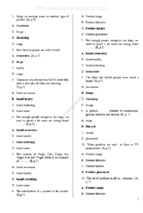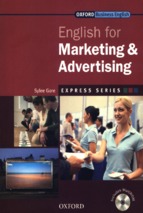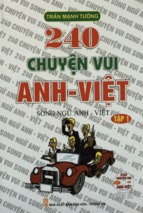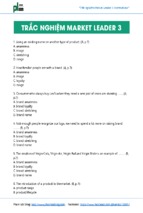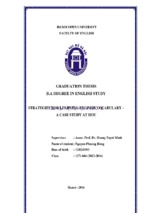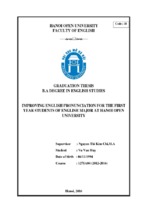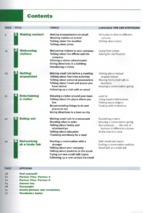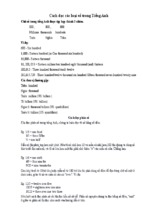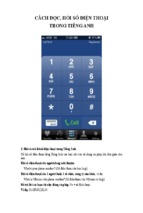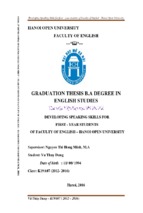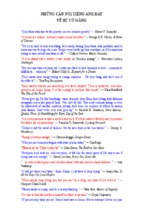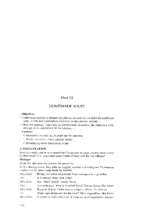MSBS BOOK 2 Dictation Activity
Unit 1: The Olympics
Listening Practice 1 (CD1, Track 1)
Sandy: Hello?
James: Hey, Sandy. It is James ______ ________. Did you _______ your _________ on the ________ of the Olympic
Games?
Sandy: Yeah, I’ve _______ __________ it. Why? Do you have a __________, James?
James: I ___ actually. I was __________ if you ______ the date of the first _________ Summer __________ Games.
Sandy: Sure. The first _________ Summer ___________ Games were ______ in 1896.
James: Great! Now, _____ _______ the date of the first ________ Winter Olympics?
Sandy: Oh, I have it _______ ________. The first ________ Winter Olympics were held in 1924.
James: __________. Now, can you tell me the ______ _________ of both the Winter Games and the Summer
Games?
Sandy: James! I am not going to ________ the _______ _____ you! Goodbye.
Listening Practice 2 (CD1, Track 2)
1) The first Summer __________ _______ ______ in Athens, Greece in 1896. Amongst 14 _____________
_________, the United States won the most _______. They took home 11 gold medals.
2) The ______ Winter Olympics were held in Chamonix, France in 1924. _________ 16 ___________ nations,
___________ won the most medals. They took home 4 _____ medals, 7 ________ medals, and 6 _________ medals.
3) The 24th Summer ___________ were held in ________, Korea in 1988. Amongst 159 _____________ ________,
the Soviet Union won the most medals. They took home 55 ______ _________, 31 _______ medals, and 46
_________ medals.
4) The 29th Summer Olympics were held in _________, China in 2008. Amongst 204 participating nations, ________
won the _____ _______. They took home 51 gold medals, 21 _________ medals, and 28 _________ medals.
Listening Practice 3 (CD1, Track 3)
Hello, everyone. Good ____________. My name is James Richardson, and I am ______ the Olympics _____________.
The topic of my __________ today is the ____________ ________ the Summer and Winter Olympics. I want to start
by _________ there are two _______ ___ Olympic Games: Summer ___________ Games and Winter Olympic
Games. First, I will talk about the Summer Olympic Games. The Summer Games are __________ than the Winter
Games. In the Summer Games, over 200 countries __________. Also, there are more than 40 ___________ kinds of
_________ _______. But the Winter Olympic Games are much ________ ______ the Summer Games. In the Winter
Games, just ________ 80 countries ___________, and there are only 15 ________. ________ they are different, both
the Summer and Winter Games are very __________ _____________.
Listening Practice 4 (CD1, Track 4)
Cathy: Hey, Greg. Did you _______ that Toronto _____ ___________ to be the ______ city for the ____________
Winter __________ ________ ______ year?
Greg: Hey, Cathy! Yeah, I ____ _______ that. I can’t ___________ the Olympic Games are going to be held just ___
_______ _______.
1
MSBS BOOK 2 Dictation Activity
Cathy: Are you going to _____ _________ to see any of the _________?
Greg: ___________ _____. I think the tickets are going to be _______ ____________.
Cathy: Yeah, but we _________ get _______ working at that new _________ ______ this summer. We could _______
up our _________ and buy tickets. It would be ________ ________ it. The Olympics are _________ held ________,
but now, they are in our ______ _________ of Canada. We have to go!
Greg: Hmmm. That _________ ______ a great idea. I would love to ________ some of the ______________ events.
Cathy: Me too.
Unit 2: Olympic Sports
Listening Practice 1 (CD1, Track 5)
2
MSBS BOOK 2 Dictation Activity
Ricky: Hey, Mom. I cannot ___________ we are __________ _____ in London at the Summer Olympic Games.
Mom: I ______ believe it ________, Ricky. It should be _____ ___ _____. What sports do you want to watch?
Ricky: There are ______ sports that I really ______ __ _____: ____________, swimming, __________, and
__________. ___________ of which, I hope that the girl from South Korea wins a gold medal in _________________
again. She was awesome ______ ________. What sports do you want to see?
Mom: I would _______ __ see those sports too. But can we _____ two more: diving and ___________? They are my
____________ favorites. I love watching the divers do all those _______. It is so cool.
Ricky: Sounds like a good plan. But first, let’s go to the hotel, unpack our bags, and _______ __ ____. I am
____________.
Mom: __________! It would be nice to ______ __ ______ after that ______ ________.
Ricky: Yeah, for sure.
Listening Practice 2 (CD1, Track 6)
1) Lucy’s favorite ___________ ________ is ________ __________. She loves watching the skaters do ______ and
______ in the air. She thinks Japan will win the most medals in figure skating next Winter Olympics.
2) Paul’s favorite Olympic sport is ___________. He likes watching how many times the ________ can ____ the
______________. He thinks Korea will win the most medals in archery next Summer Olympics.
3) Christina’s favorite Olympic sport is ______________. She thinks the __________ _________ the big teams are
really fun to watch. She thinks the US will win the gold medal in basketball next Summer Olympics
4) James’ favorite ___________ sport is _____________. He loves watching the _____ _____________. He thinks
China will win the most medals in swimming _____ Summer Olympics.
Listening Practice 3 (CD1, Track 7)
Good afternoon, ________ _____ ____________. Welcome to the ____________ _________ about men’s skiing.
Today, the ________ of my speech will be the ____________ between alpine and cross-country skiing. Alpine skiing
and cross-country skiing are two _______ different ________. First, I want to talk about ______ skiing. Alpine skiing is
much ________ ______ cross-country skiing. You have ___________ _______ alpine skiing before. It is when the
skiers go down the ski ________ really fast. It __________ events like downhill, slalom, and giant slalom. Next, I will
talk about cross-country skiing. Cross-country skiing is ________ _____ alpine skiing. You have probably seen crosscountry skiing too. They are the ________ skiing events. Cross-country skiing ___________ _______ like men’s sprint,
the 30 kilometer, and the 4-person ______ _______. _________ they are very different, both alpine skiing and crosscountry skiing are very __________ Winter Olympic ________.
Listening Practice 4 (CD1, Track 8)
Robbie: Hey, Grace! Did you watch Canada play __________ in the Winter Olympic hockey ________?
Grace: Hey, Robbie. Yep! It was _______ __ _______ game. ____ __ _________, I ________ Canada was going to win.
Robbie: Yeah, but at the end, Sweden could not be __________! I didn’t _______ them to ________ three goals in
the fourth __________ _________.
Grace: Me __________! The third goal was the biggest __________.
Robbie: Did you see how Johnson __________ the goalkeeper?
3
MSBS BOOK 2 Dictation Activity
Grace: Oh, yes! It was __________! That is why he was __________ the game’s Most ___________ Player.
Robbie: I had no idea Johnson was such a ___________ player.
Grace: Me neither. He really ____________ me. Now, I can’t wait to see next year’s big Olympic _________
________.
Robbie: Grace! The Winter Olympics only happen _______ ________ _______ years.
Grace: Oh, really? That’s ____ _____.
Unit 3: Admirable Athletes
Listening Practice 1 (CD1, Track 9)
Danny: Mom, what are you watching?
4
MSBS BOOK 2 Dictation Activity
Mom: Hey, Danny. It is a __________ on _____________ ________.
Danny: What is an _____________ _________?
Mom: An _____________ _________is an athlete who does ___________ things for the _____________.
Danny: Oh, like a sports ________ who __________ a lot of money to _____ sick __________?
Mom: _________. Look, the ____________ is over. Let’s watch! Now, they are __________ about Cal Ripken Jr.
Danny: Isn’t he the __________ ___________ player in the US?
Mom: Yep.
Danny: What did he do that was ____________?
Mom: He does a lot of _________ ______. For example, he started a ___________ that gives _______________
children a _________ to go to baseball summer camp.
Danny: That was _______ ___ him.
Mom: Yeah, it was. Now go back ___________ and finish your ___________, Danny. After you _______ it, you can
come back and watch TV ________.
Danny: OK, Mom.
Listening Practice 2 (CD1, Track 10)
1) Magnus Scheving is a famous ____________ _____ Iceland. He started a TV show that _________ children about
_________ and ________ __________.
2) Richard Hadlee is a famous cricketer from New Zealand. He started a __________ that _______ young __________
with ____________ __________.
3) Andre Agassi is a famous _________ ________ from the US. He _________ over 20 million dollars to ___________
_______________.
4) Tiger Woods is a famous golf player from the US. He ________ __ __________ that gives _____________ to kids
who cannot _________ to go to ____________.
Listening Practice 3 (CD1, Track 11)
Hello, everyone. My name is Mario Lemieux, and I am a _________ _________ hockey player. A lot of people have
________ me ___________ my _____, and now I want to ______ _______ to other people. Today, I would like to talk
to you about my _____________, The Mario Lemieux Foundation. I started it over 15 years ago. The __________ of
my foundation is to _________ money for __________ research. When I was younger, I almost _______ ___ a serious
________. Smart doctors _______ my life. That is why I _________ ________ ___________. Today, my foundation
supports ______________ such as the University of Pittsburgh Cancer _________, the Lupus Foundation, and the
Children's Home of Pittsburgh. ___ __________, we also give ________ to scientists. Any ___________ __________
____ grants should go on our _________. All ___________ for applying for one of our grants are __________ ___
________ there.
Listening Practice 4 (CD1, Track 12)
Frank: Hey, Jenny. What are you __________ ___ your _______?
Jenny: Hey, Frank. You mean this? It is a Livestrong ___________.
Frank: What is that?
5
MSBS BOOK 2 Dictation Activity
Jenny: Have you ever ________ ___ Lance Armstrong? He is an American cyclist.
Frank: Yeah, he won the Tour de France a ________ ___ times, right?
Jenny: Right. Well, he has a ___________ that gives money to _______ ___________. For every dollar you
___________, you get a ___________.
Frank: Oh, cool. My grandmother had __________ a few years ago. __________, the doctors _______ it. I am always
happy to hear that people are _________ cancer research. How much did you donate?
Jenny: I __________ ten dollars, so I got ten _____________. Actually, I have an _______ one right here if you want
it.
Frank: Aw, thanks! It looks really cool. I am going to ___________ some money too. ______ ___ _____ ___ __ ?
Jenny: Just ___ ___ _____ Livestrong ___________. It is really easy.
Frank: OK, I will! Thanks!
Unit 4: National Sports and Spectacles around the World
Listening Practice 1 (CD1, Track 13)
Alice: Hey, Brandon. Are you _________ ______ your presentation?
Brandon: Hey, Alice! Yeah, I was ___ ________ 2 am working on it! How about you?
6
MSBS BOOK 2 Dictation Activity
Alice: I am ready – I think. I am ___________ ___ _______ _______ ssireum. Have you ever ________ ___ it?
Brandon: Nope. What is that?
Alice: Ssireum is a national Korean sport. It is full contact ___________ played in a __________ ring. What is your
presentation about?
Brandon: Cricket. It is a bat and a ball ________, kind of like baseball. It started in __________, but these days it is
popular all over the world.
Alice: Cool.
Teacher: OK. Thank you Sarah. ________ ____ is Alice!
Alice: Uh oh. It’s my turn.
Brandon: Good luck! I _______ __________ ___ hearing all about ssireum.
Listening Practice 2 (CD1, Track 14)
1) Hockey is a ____________ sport of Canada. It is a _______ sport played on ice.
2) Sumo wrestling is a _____________ sport of Japan. It is an __________ sport played on a sand ring.
3) Rugby is a traditional sport of England. It is a team sport _________ on a ______ or ______ _________.
4) Dragon _______ _________ is a traditional sport of China. It is a team sport played on water.
Listening Practice 3 (CD1, Track 15)
Hello, everyone. I am Adriano Androssi from the __________ ________ Club. I travel around the world __________
kids about Brazilian sports and ________. Today, I am here to talk to you about footvolley, a sport that was
__________ in Brazil in 1965. I am sure all of you know what _________ is, and most of you __________ know what
___________ is. Well, footvolley is a _____ __________ soccer and volleyball. The game was invented because the
________ ________ soccer on the _________ in Brazil. __________ used the volleyball ________ as a way to
_________ soccer without __________ ____ _____. The ______ are the same as beach volleyball, but there is one
big ___________: You can’t use your hands, just like in soccer. That makes the game a lot ______ __________ and
fun. Today, it is ___________ around the world!
Listening Practice 4 (CD1, Track 16)
Maria: Wow! This ____________ ring is beautiful. I still ______ _________ we are here in Sevilla, Spain, Andy.
Andy: It is __________ isn’t it, Maria? Everyone ______ you should watch a bullfight when you come here to
________.
Maria: To be _________, I feel a _______ _________ about watching a man fight a bull. I think it is kind of _______
because at the end the _______ dies.
Andy: I understand that. I heard some ____________ people __________ them these days. ___________, though, I
feel it is an ____________ ______ ___ Spanish ________ that should be __________.
Maria: Yeah, I _____ ______ _______ too. There are sure __ _____ ___ people here today!
Andy: I know! It is __________ bullfighting is ______ _____ ________ in _________ Spain.
Maria: After the bullfight __ ______, do you want to _______ the bullfighting _________?
Andy: ______ _______! That sounds interesting!
7
MSBS BOOK 2 Dictation Activity
Unit 5: Wonders of the World
Listening Practice 1 (CD1, Track 17)
Silvia: Jacob, this ________ is huge! The Grand _________ really is ___ _____ ___ everyone says it is.
Jacob: ________ _____ coming with me, Silvia. I have always wanted to come here to __________, but I’ve never
had _________ __ ______ ______. It is great to have ________ _________ at the office who loves __________.
Everyone else at work is so __________.
8
MSBS BOOK 2 Dictation Activity
Silvia: No problem. This place is great. I didn’t know how __________ the Grand Canyon is.
Jacob: Me, neither. All the _______, __________, and __________ sure do make a beautiful ____________!
Silvia: Are you going to _______ _____ _________?
Jacob: Of ________! My friends would _____ _____ ___ ____ if I didn’t show them ________ of the trip. How about
you, Silvia?
Silvia: ____ love to, but I ______ my _____ in the car.
Jacob: No ________! You can just ______ my photos later.
Listening Practice 2 (CD1, Track 18)
1) This summer, Neal wants to go see the ________ Coliseum in Italy. It is a big ______________ that was _______
___ ________ Roman times.
2) ______ winter, Tony wants to _______ the ________ _______ in China. It is a huge 6,400km wall that was built to
________ Northern China _______ ________ ________.
3) This _______, Paco plans to visit the Great _________ ______ in Queensland, Australia. It is the _______ _______
_______ in the world and a great place to go _______ _________.
4) In the ______, Kimmy will go to Angel _______ in ____________. It is the largest __________ in the world and one
of the top ________ ___________ in Venezuela.
Listening Practice 3 (CD1, Track 19)
Hello, everyone. Welcome to our ______ ___ Machu Picchu. Machu Picchu is an ______ _____ here in Peru, and the
name “Machu Picchu” __________ means “old ________” in Quechua, one of the ___________ _______ in Peru.
The name was _________ because of Machu Picchu’s ________ _________ on the ________ of a mountain. And
because of its ___________ location, some people ________ Machu Picchu to be one of the most beautiful _______
______ _______. Machu Picchu is ______ _________ ___ the ________ city of the Incas. The Incas were an
________ ___________ that lived here in Peru __________ of years ago. They built Machu Picchu ________ in 1462.
Today, the place is ________ because _____________ believe everyone who lived here ______ ___ a _________
called smallpox. But don’t worry. There is no ________of that disease here ___________.
Listening Practice 4 (CD1, Track 20)
Sue: Hey, Won! ______ ______ ________ ______ to Brazil last month?
Won: It was great, Sue. My family and I went to Rio de Janeiro.
Sue: Oh! I _______ _________ two years ago. What did you see ___ _____ _______?
Won: We went to Lapa, the Christ _________, and Copacabana _________. What did you see?
Sue: We _______ ___ Ipanema Beach, Sugar _______ Mountain, and Santa Theresa. Did you do any _______
__________ ________ you were there?
Won: Yep! We went _______ _________ and bike riding _________ ____ _____, and we ________ samba ___
_________. It was really cool! How ________ _____, Sue?
Sue: We went __________ and ____________ during the day, and we _____ __________ steaks at night. The meat
there is _____________! Will you ______ _______ __________?
Won: I sure hope so! ________ is ___________ my __________ country ___ _____ ________! How about you?
9
MSBS BOOK 2 Dictation Activity
Sue: I ______ a lot of _____, but I probably won’t go back. Next year, my family and I are going to ___________
_________.
Unit 6: Beautiful Palaces
Listening Practice 1 (CD1, Track 21)
Brian: Hey, Anna. What do you _______ ____ ___________ during your trip ________ Europe this summer?
Anna: Hey, Brian. I am _____ _________ _______. Do you have ______ _______?
Brian: Well, what are you __________ ____?
Anna: Hmm. It ________ ___ _______ to see some of Europe’s ________ __________. I think it would be interesting
to ________ ______ where some of those famous __________ __________ lived, but I don’t know ________ ones
are ________ visiting.
10
MSBS BOOK 2 Dictation Activity
Brian: I do. You should go to Versailles in __________, Schonbrunn in Austria, and Buckingham Palace in __________.
Those are the best three palaces ___ ________.
Anna: Ah, thanks! _____ ________ _________?
Brian: Yeah. When you visit _____________ ________, _______ ______ you go ______ to ______ _____ _________.
It gets really _______ in the _____________.
Anna: I ___________ will. I ____________ the ___________. Do you have any summer plans?
Brian: Not this summer, but next __________, I want to go to Japan and check out the __________Palace in Tokyo.
Anna: That ________ awesome!
Listening Practice 2 (CD1, Track 22)
1. The ________ Palace of Madrid is one of the most __________ palaces in Spain. The Palace is still the ________
____________ of the Royal Family of Spain, but they do not live there __________. Today, it is mostly used for
___________ _________.
2. The Royal Palace of Phnom Penh is the _________ _______ in Cambodia. _______ many other palaces, it is _____
__ _________. The King ________ lives there.
3. The Pink House is a large ______ _________ in the ________ ___ Buenos Aires, Argentina. It ________ ___ an
office for the ___________ of Argentina, but he does not ______ there.
4. Schonbrunn Palace in ___________ is a very large palace in _________. _____ _______, it was the summer
____________ for the Hapsburgs, one of the most __________ ________ _________ in _________ history. Today, it
is used as a _________.
Listening Practice 3 (CD1, Track 23)
Welcome to Gyeongbok Palace, one of the most ___________ _____ for _______ here in Seoul, South Korea. I will
start our ______ ___ _______ you a ______ ______ of the palace. The palace was ________ _______ in 1394, and it
________ ___ the __________ ___________ and ____________ for many different Korean _______ and ________
over the years. There were living _________, _________, _________ ______, and offices. In fact, there were over
390 buildings ___ ______ _________. ______________, the palace has been ___________ _________ since it was
first built. Thanks to some hard work, however, it is ________ _________. ____ __________, there are around 128
__________. And while it has not been __________ ________, Gyeongbok Palace _________ as a _________
_______ and _________ where visitors like you can come and ________ about _________ ________. I hope you
_______ ______ ______!
Listening Practice 4 (CD1, Track 24)
Robert: Hey, Lucy! I heard you went to Buckingham __________ in London ______ summer. Is that _______?
Lucy: Hey, Robert. Yeah, I went there ______ _____ ________. It was a great trip!
Robert: Did you see the __________?
Lucy: Nah. She does _______ there ________. The palace is still the _______ __________ of the British
____________.
Robert: Cool. I will have to visit. It would be _________ ___________ to say that I visited the house of __________
________.
Lucy: If you go, make sure you visit in August or ___________. Those are the only two ________ visitors can go 11
MSBS BOOK 2 Dictation Activity
________ the palace.
Robert: Really? Why is that?
Lucy: That’s when the Queen ________ her ________ __________ to Scotland.
Robert: Oh, OK. I’ll _______ ______ ___ _______.
Unit 7: The Tallest Structures around the World
Listening Practice 1 (CD1, Track 25)
Annie: Hello?
Travel Agent: Good afternoon, Annie Marsh. I am _________ because you _____ a _________ you _________ last
month with my company, World Tours in Tall Places. You are going to visit all the _________ __________ _________
in Asia.
Annie: Really? I won the ________ Skycity Tour?
Travel Agent: Yep! You _________ _____! You are going to _________ to visit the Taipei 101, to Hong Kong to visit the
IFC, to __________ to visit the World ________ Center, and _________ to Kuala Lumpur to visit the Petronas
_________.
12
MSBS BOOK 2 Dictation Activity
Annie: I can’t believe it! I _______ _____ any _________! Just __________, how tall are those buildings?
Travel Agent: Oh. Hmm. I have that _________ ______ somewhere. _______ ____. OK. _______ ___ ___. The Taipei
101 is 509 meters tall, the World Finance Center is 490 meters tall, the Petronas Towers are 450 meters tall, and the
IFC is 415 meters tall.
Annie: Wow! ______ ________! I have never _______ any buildings that tall ___ ____ ______. Oh, so since I won the
contest, I don’t have to _____ anything _____ this trip?
Travel Agent: Well, all your _________, ________ _____________, and hotel ________ are ________, but your
__________ expenses are not.
Annie: That is OK! I ______ _______!
Listening Practice 2 (CD1, Track 26)
1) The tallest _______ buildings in the world are the Petronas Towers in Kuala Lumpur, __________. Including the
________, they are 451meters tall.
2) The tallest ___________ ________ in the world is the CN Tower in Toronto, Canada. __________ the
___________, it is 553 meters tall.
3) The tallest building in _______ America is the Willis Tower in Chicago, USA. Including the ___________, it is 527
meters tall.
4) The tallest ________ _________ in the world is the Kingda Ka at Six Flags in New Jersery, USA. It is 139 meters tall
and ________ 206 km ____ _______!
Listening Practice 3 (CD1, Track 27)
Hello, class! The topic of my _________ _______ is the ____________ ________ _________ and modern buildings.
First, I want to talk about ancient buildings. This is a very interesting _________ for me because I studied ancient
history in __________. Ancient buildings were __________ ________ of _______, and they took many years to
__________. They were also much smaller than ________ buildings. The tallest building of the ancient ________ was
the __________ of Giza in Egypt. It was 146 meters tall. But now, let’s look at ________ _________. They are a lot
________ ______ the buildings of the ancient world. They are normally _______ ___ _______ and ___________, and
they only take __ _____ _______ to __________. They are also much _________ ______ ancient buildings. The
tallest building of the modern world is the Burj Khalifa in the United Arab __________. It is 818 meters tall.
Listening Practice 4 (CD1, Track 28)
Daniel: Yumi, we _________ ______ ___! Here we are ___ _______ ___ the tallest ________ in the _______ world,
the Eiffel Tower in France!
Yumi: Umm, Daniel. I _______ ___ _______ _____, but the Eiffel Tower has not been the tallest structure in the
world ________ 1930.
Daniel: Really? What ________ ___ taller than this?
Yumi: Well, the _________ State Building in New York City, the CN Tower in _________, and the Petronas Towers in
Kuala Lumpur _______ ___ _______ __ _____.
Daniel: __ _____. So what is the _________ __________ in the world?
Yumi: A building called the Burj Khalifa in the United Arab Emirates. It is 818 _______ _______. The Eiffel Tower is
only 324 meters tall.
13
MSBS BOOK 2 Dictation Activity
Daniel: So are you _________ ____ this isn’t ______ ______ ____ ______ ___ the tallest building in the world?
Yumi: _______, Daniel. I _________ I am not ________.
Daniel: Man! I am ________ _______.
Unit 8: The World’s Most Expensive Art Pieces
Listening Practice 1 (CD1, Track 29)
Sebastian: Hey, Vivian. I heard your dad _______ ____ __ _________. Is that true?
Vivian: Hey, Sebastian. Yeah, he goes _________ ____ ________ __________ art ________ for a modern ____
__________ here in London.
Sebastian: What a cool ____! I ____ he gets to see a lot of __________ and __________ pieces of art.
Vivian: Yeah, he ___________ ______. Just last week, a __________ art _________ gave the museum a painting that
________ 50 _________ US dollars!
Sebastian: 50 million US dollars? Who would ______ 50 _________ dollars _____ __ _________?
Vivian: A lot of __________. My dad told me the ______ ___________ painting _____ ______ was for 140 million
dollars.
Sebastian: Wow, I didn’t know _____ ______ that expensive! ____ _________ you ________ hear stories of
14
MSBS BOOK 2 Dictation Activity
__________ ___ __________.
Vivian: __________! And that is why they all have so many __________ _________.
Listening Practice 2 (CD1, Track 30)
1) The most expensive _______________ ever ______ was called 99 Cent II Diptychon. ___ was sold _____ 3.3
million US dollars in 2007.
2) The most ___________ ___________ ever sold was called For the Love of God. It was sold for 100 million US
________ in 2007.
3) The most expensive __________ ______ ______ was called Number Five. It was ______ _____ 140 million US
dollars in 2006.
4) The most expensive _____________ ______ sold was called Portrait of an Artist without a Beard. It _____
_______ _____ 71.5 million US dollars in 1998.
Listening Practice 3 (CD1, Track 31)
Good afternoon, _________ and ____________. ___________ ___ Brinkley’s, the most famous _____ _________
_______ in the world. Today, we are ________ __________ ____ three famous _________: one by Claude Monet,
_______ by Vincent Van Gogh, and ____ ________ by Andy Warhol. It is a very __________ __________. The first
painting ___ _____ ______ is Poppies Blooming by Claude Monet. It is a painting of Monet’s _______ and ______.
The second _________ up for sale is The Yellow House by Vincent Van Gogh. It is a __________ ___a French house
that Van Gogh _______ ___. The ________ and ________ painting of today is Campbell’s Soup Cans by Andy Warhol.
It is a painting of 32 ______ ______. The __________ _____ today’s paintings will _______ ____ 5 million dollars. If
you _____ ___ __________, please ______ ___ ____ _________ before __________ your painting. ____ _________,
all ________ _____ ________, so no _________. Good luck!
Listening Practice 4 (CD1, Track 32)
James: Mom, thanks for _________ ____ ___ this art museum. _________ _____ a lot of cool paintings here!
Mom: ____ __________, James. I love to look at art!
James: Mom, my friend Stewart ___ _________ says that some people ________ ____ of _________ on art work. Is
that true?
Mom: Your _________ Stewart is right. I am sure there are some paintings in this _________ _______ millions of
dollars. _____ __________, that painting _______ _________ done by Vincent Van Gogh is called ____________,
and it ___ _________ over 70 million dollars.
James: Whoa! I am going to __________ an artist to ____ _______.
Mom: __________, James, it is very hard for an ________ ___ _______ ________. Most artists have a lot of
_________ _________ _________ for their work. In _______, when Vincent Van Gogh was ________, he _________
had _________ money to ____. It was ______ ________ _______ he _______ that his ___________ _____ _____ for
lots of money.
James: Oh! I guess I will _______ ___ my ___________ ______ of being a ____________ soccer player then.
Mom: Yeah, _______ _______, James.
15
MSBS BOOK 2 Dictation Activity
Unit 9: Birthstones
Listening Practice 1 (CD1, Track 33)
Matthew: Hey, Betty. My friends and I are _________ to the _______ _______ ________ to buy birthstones. Do you
want to come?
Betty: Hey, Matthew. What is a ____________?
Matthew: Are you __________? A birthstone is a ________ _______ that brings good ________. There is a
__________ one for every ________.
Betty: Hmm. I’ve _________ ________ about that. What is your birthstone?
Matthew: I was ________ ___ _______, so my birthstone is an __________.
Betty: Oh, I _____ ___. I was born in ___________. What is my birthstone?
Matthew: September, hmm. Oh! September is a _____________. I remember because my ________ was born in
September too.
Betty: This is cool. I will ____________ _______. When are you ___________?
Matthew: As soon as _______ ___ _______.
16
MSBS BOOK 2 Dictation Activity
Betty: Sounds great. Can I ________ ____ _______ Jane too?
Matthew: Sure. When is her ___________?
Betty: In ___________.
Matthew: Oh. October is an opal. They are ___________.
Betty: Great. I am sure she will be very ___________!
Listening Practice 2 (CD1, Track 34)
1) The birthstone for __________ is a _______. It is a red stone, and ________ _____ ___________ it will bring you
_____________ and __________.
2) The ____________ for _____________ is a Sapphire. It is a ______ _______, and _________ says wearing it will
bring you _____ and ________ ___ _______.
3) The birthstone for ______ is an __________. It is a ________ stone, and legend says _________ ___ will bring you
_______.
4) The birthstone for __________ is an amethyst. It is a ________ _______, and ________ ______ wearing it will
bring you _________ and _________.
Listening Practice 3 (CD1, Track 35)
Hello, everyone. Good afternoon. I am Fabio Rossi ______ the ______ History Museum. I am _______ ___ ______
_____ about the history of ___________. Many different ________ ___________ history have ______ birthstones.
Ancient ____________ in India and Babylon __________ ________ ______ had special ________. Those cultures
_______ 12 stones ________ ___ their colors and _______ them to ________ ______. The __________ is even
___________ in the __________ _____. But it wasn’t until _______ ________ that people _________ _______ to
wear birthstones. That is believed to ______ __________ in _________ in the 15th _________. In modern ________,
the birthstone has been ____________ and _______________. A ___________ ______ was _________ by the
American __________ ____________ of Jewelers in 1912. Today, they are _______ ___ __________ _______ all over
the world. A lot of people give them as ___________ and ____________ ___________.
Listening Practice 4 (CD1, Track 36)
Timmy: Hey, Genie! Is that a new ___________?
Genie: Hey, Timmy! Yeah, I just got it ______ ___________ _____ ____ ____________.
Timmy: It looks ___________. What kind of _____ is in it?
Genie: An ___________. It‘s my birthstone.
Timmy: Oh. I heard about _________. They _____ __________ ___ ________ you good _______, right?
Genie: Yeah.
Timmy: Do you __________ _________ ___ those things? I ________, how could a _______ ________ ________
good luck?
Genie: Well, I don’t really believe it ______ ______ _________ ________, but it is _______ and ______ to wear!
Timmy: Yeah, I _______ ___ _______ ______ is a good-looking __________. Oh! ________ ____________! I forgot
to _______ you a __________ ________.
Genie: Don’t ________ _______ it. I never told you it was my ___________ _________.
17
MSBS BOOK 2 Dictation Activity
Unit 10: Blood Types and Personalities
Listening Practice 1 (CD1, Track 37)
Chris: Hi, Beth. What are you __________?
Beth: Hi, Chris. I’m reading a book about _________ ___________. Did you know that in Korea and Japan many
people believe you _____ _________ _____ a person’s ____________ ___ you know their _________ ______?
Chris: Really?
Beth: Yeah, it ______ ___ ____ _______ there are some people who use _________ ______ to see if two people are
______________ for _________.
Chris: Wow. How __________!
Beth: It is really cool actually. I am blood type A, and the book says I am ___________ ____ _____. Hey, what is your
blood type? I will see what the book says about _______ ____________.
Chris: My blood type is AB.
Beth: OK. _____ ____ ______.
Chris: Actually, Beth, I have to go to class, but can I __________ that book when you _____ __________?
Beth: Sure thing.
18
MSBS BOOK 2 Dictation Activity
Listening Practice 2 (CD1, Track 38)
1) Blood type A is the most __________ blood ______ ___ ________. It is ________ that people with this blood type
are __________, ___________, and _______ _____.
2) Blood type O is the _______ ______ common ________ type in Korea. It is thought that people with this blood
type are ________, ___________, and very ______________.
3) Blood type B is the second most ___________ ________ ______ in Korea. It is thought that people with blood
type B are _____________, _____________, and __________.
4) Blood type AB is the __________ _________ blood type in Korea. It is _________ ______ people with blood type
AB have _____ ___________: they can be __________ and _____________ one day, but _____ and ________
another day.
Listening Practice 3 (CD1, Track 39)
Hello, everybody. I am Robert Johnson from the Japanese-American __________ _______. Since many Americans
_______ _____________ people believe that blood types are ________ ___ _____________, there have been a lot
of __________ coming to our ________ about how the ________ _______. From our research, we __________ the
idea of blood types being linked to ____________ started in 1927 by a man ________ Takeji Furukawa. He _______
____ ______ the _________ after working in a high school and __________ the different personalities in children.
Takeji was not a __________, but his _________ became _________ _______. Later, in the 1970s, a ____________
named Mashiko Nomi ________ __ _________ of books about the idea. The books were very popular and the
_________ _______ strong. There is no _________ ________ __________ the idea that blood types are linked to
___________, but it is still a _____________ _________ in Japan today. And that is one of the _________ 90% of
Japanese people know their blood type. That _____________ is much _________ here in America.
Listening Practice 4 (CD1, Track 40)
Sunny: Hey, Patrick. Have you ever seen the __________ ________ My Boyfriend is Type B?
Patrick: Nope. I have never ________ ___ it, Sunny. What ________ ___ ___ ______?
Sunny: It is from Korea.
Patrick: Oh, cool. I ______ _________ _______! What is it about?
Sunny: It is about a girl with blood type A who ________ a boy with blood type B. It is so _________!
Patrick: Um, why would it ________ what blood types they have?
Sunny: Oh, in _________ __________ some __________ ________ you can _____ a person’s ___________ _______
their blood type.
Patrick: ___________. I didn’t know that. Well, what are the ____________ of blood types A and B?
Sunny: People with blood type A are _____, ________, and __________. People with blood type B are
____________, ___________, and _______________.
Patrick: Ha! That is ____________ because it sounds just like me and my _____________. I will ___________ go
watch that ________ soon.
19
MSBS BOOK 2 Dictation Activity
Unit 11: Superstitions and Bad Luck Signs
Listening Practice 1 (CD1, Track 41)
Nicole: Hey, Andy. ________ ______ _______ __________?
Andy: Hey, Nicole. I’m watching a show about _____________ and bad luck _______. It is pretty funny.
Nicole: Are you a ___________ _________, Andy?
Andy: No, I don’t __________ in that kind of ________. How about you?
Nicole: Actually, I am a very ____________ person. It _______ ____ _______ kind of ______ sometimes, but I ______
_______ ___.
Andy: Well, what ___ _____ ____ that is so ____________?
Nicole: Lots of things. _____ _________, I always have to ________ ________ my good luck _________ _______. I
honestly can’t _________ ____ _________ without it.
Andy: Ha! My __________ does the _______ thing. Do you think it really ________?
Nicole: __________ _____, but I _______ if I leave it ___ ________, my day will be ________ ______ bad luck.
Listening Practice 2 (CD1, Track 42)
1) In the _________ States, many people think that the _________ 13 is _________. For this _________, lots of tall
buildings do not have a “13th _________.”
2) For many years in Japan, people believed ___ a person saw a white snake, he would have _______ _______ _____
20
- Xem thêm -

